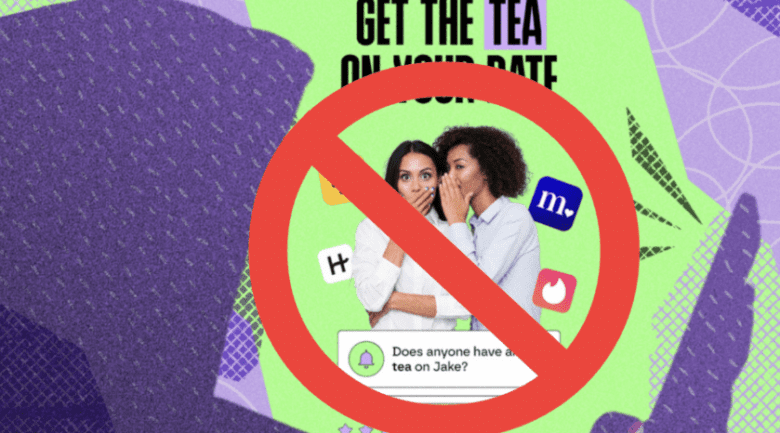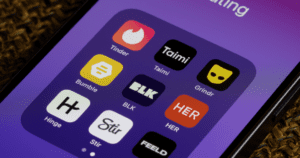Apple Says It Pulled Controversial Dating Apps Tea and TeaOnHer From the Apple App Store Over Dating Safety and Privacy Issues
In an industry-shaking move, Apple has confirmed that it removed the controversial dating safety apps Tea and TeaOnHer from the App Store in all markets. These apps, once popular among users seeking dating advice and transparency in the online dating world, are now at the center of a privacy and ethics storm. From privacy violations to developer misconduct, Apple’s decision reflects a broader effort to maintain safety and trust in the Apple App Store ecosystem.
Let’s dive into the 7 major reasons why Apple confirmed the apps’ removal, and why this marks a turning point for dating apps, user privacy, and content moderation online.
1. Major Violations of App Store Review Guidelines
Apple’s decision wasn’t arbitrary. The company cited clear breaches of its App Review Guidelines, particularly rules 1.2, 5.1.2, and 5.6, which focus on user-generated content, data privacy, and developer responsibility.
Rule 1.2: Unsafe User-Generated Content
Guideline 1.2 requires that apps with user-generated content should offer tools for reporting, blocking, and removing inappropriate material. In the case of Tea and TeaOnHer, users were able to post sensitive information about others — such as names, images, and details about men on dating platforms — with minimal moderation.
These platforms failed to provide proper oversight, allowing posts that could easily lead to defamation, online harassment, or even physical danger.
Rule 5.1.2: Sharing Personal Information Without Consent
Perhaps the most damning violation was Tea’s mishandling of personal information without permission. Users uploaded selfies and photo IDs as part of account verification, which were later exposed. This is a direct breach of Apple’s app store privacy standards, which prioritize user consent and data protection.
Rule 5.6: Developer Code of Conduct
Rule 5.6 says that apps must not accumulate an excessive number of negative reviews or user complaints. Apple reportedly communicated these issues to the developers, but the developers of the apps failed to meet Apple’s requirements. This lack of corrective action led to removal based on the developer code of conduct.
2. A Massive Data Breach That Compromised Thousands
In one of the most disturbing developments, Tea suffered a data breach that exposed more than 72,000 images, including:
- 3,000 government IDs and selfies
- 59,000 images from posts and messages
- Data linked to minors’ personal information
This breach highlighted serious security issues and demonstrated how a safety app could become a threat to its own users. The breach was widely reported and confirmed by TechCrunch, which emphasized the extent of the failure to secure sensitive data.
3. An Ethical Debate Over Crowdsourced Dating Advice
The concept behind Tea dating advice and TeaOnHer was inspired by Facebook groups like “Are We Dating the Same Guy?” These apps encouraged women to leave reviews about men — sometimes anonymously — labeling them as “green flags” or “red flags.”
But the idea quickly spiraled into controversy. The apps Tea and TeaOnHer allowed the posting of personal information, opinions, and images without verification, raising concerns of cyberbullying, public shaming, and invasion of privacy.
The male-oriented rival app, called TeaOnHer, mirrored the functionality but for men to rate women. The result? Widespread backlash, ethical concerns, and a toxic user environment ran contrary to the idea of a dating safety tool for women.
4. Developers Ignored Apple’s Warnings
According to reports confirmed to TechCrunch, Apple removed the Tea apps after repeated warnings. The developers of the apps did not fix the critical problems flagged by Apple, including:
- Lack of effective content moderation and user privacy
- Unsafe handling of user-generated content
- Unresolved user complaints
This communication breakdown demonstrated a failure of leadership and responsibility. Apple took action only after giving developers a chance to make corrections, which were not addressed.
5. Copycat Apps Are Exploiting the Gap
Despite the app store removal, the concept behind Tea and TeaOnHer lives on through clones and lookalikes. One such app, TeaOnHer and Him – Overheard, has gained significant traction and is now climbing the overall top app charts.
Meanwhile, the original apps remain live on Google, with both Tea and TeaOnHer still available on Google Play. This raises serious questions about consistency in enforcement across platforms.
Are we witnessing the beginning of a new wave of controversial dating platforms exploiting regulatory gaps?
6. Massive Popularity Fueled Profits — and Scrutiny
Despite their flaws, the dating apps Tea and TeaOnHer achieved remarkable growth:
- The Tea app reached over 6.1 million downloads and generated $5 million in gross revenue
- TeaOnHer had 2.2 million downloads, although it did not offer in-app purchases
These figures reflect a huge demand for dating advice and social validation in online relationships. However, they also underscore how dangerous apps can grow quickly before facing accountability.
7. A Turning Point for Dating App Safety and Regulation
Apple’s bold move could set a precedent for how apps from the App Store are evaluated moving forward. The tech giant has made it clear: if developers don’t uphold user safety, their products will be pulled from the Apple App Store.
We can expect:
- Stricter enforcement of App Store Review Guidelines
- Enhanced protection of privacy and content
- New expectations for how app developers handle user-generated content
This shift may also encourage users to be more critical of safety apps, especially those involving dating the same guy narratives or revenge-posting features.
Conclusion: Why Apple’s Move Matters
By pulling the controversial dating apps Tea and TeaOnHer from the App Store, Apple says it is reaffirming its commitment to user privacy, safety, and ethical responsibility. The incident shines a spotlight on how apps with user-generated content can easily cross into dangerous territory if content moderation and user privacy safeguards are not in place.
As Apple confirmed to TechCrunch, this decision was not taken lightly. But with the rise of controversial dating safety apps Tea and safety apps Tea and TeaOnHer, it’s clear that the digital dating space is evolving — and platforms must evolve with it.
For users, the key takeaway is simple: not all dating apps are created equal. Prioritize platforms that protect your data, respect your dignity, and truly aim to create a safer experience online.



